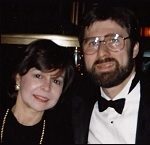“-David, we have a celebrity here! This Arab writes “Tel Aviv on Fire.” Do you watch it?
-Once. It’s anti-Semitic.
-With a name like that, did you expect a Zionist show?”
Dialogue from the comedy “Tel Aviv on Fire”
By Nina Heyn- Your Culture Scout
The pool of independent movies in Hollywood is shrinking every year, gradually replaced by superhero blockbusters, tentpole animations and action franchises from powerhouse studios. “Thinking man movies” are thin on the ground from Hollywood. International cinema seems to be replacing this void somewhat, even though not that many foreign movies will be seen in the US where audiences steadily resist any subtitled fare. Some foreign language dramas will surface soon as Oscar contenders but international comedies are rare at both the awards circuit and in local multiplexes.
Tel Aviv on Fire is therefore a rare find, relegated to art house movies in the US but worth finding, a little gem of a tale about life in modern day Jerusalem and Ramallah – the two cities 10 km apart but totally separated by conflict, religion, ethnicity, and politics. But there are women on both sides of the fence, and some of them like watching romances on TV.
Salam (Kais Nashef) is a Palestinian living in Ramallah and working in Jerusalem. Having failed at both a relationship and getting a good job, he is now a gofer at his uncle’s TV show production of a soap opera “Tel Aviv on Fire.” Despite the fiery title, it’s just a hokey spy romance triangle between a beautiful Palestinian spy and her two love interests – her Palestinian handler Marwan (Ashraf Farah), and a dashing Israel colonel Yehuda (Yousef Sweid). To spice the plot up, the action is taking place during the 1967 Six Day War. When the chief writer quits, Salam is tasked with writing a story line for the beautiful Tala (Lubna Azabal). His only qualification for the job (aside from nepotism) is that he can correct the Hebrew dialogue lines so now he needs some fast help with both actual screenwriting and the romance plot. On his daily commute to work through an Israeli checkpoint he strikes an uneasy friendship with Assis (Yaniv Biton), a checkpoint commander who helps Salam write the scenes for the show (in exchange for the best Palestinian hummus and some creative control).
This is not a hearty laugh comedy – which probably be would be a bit hard considering the precarious equilibrium of daily life in that region. It is therefore a bit of dry humor that spurts from the constant confrontations between the Israelis and the Palestinians – at checkpoints, at restaurants, and over the show’s production where Salam is accused by both the Israeli co-writer and his Palestinian producers of taking the enemy’s side. Yet the show must go on, which means that Salam has to navigate between demands of the French diva star who just wants the best lines, the Israeli commander who wants a happy wedding ending to keep his wife happy, the Palestinian producer who just wants to end the show with a big explosion to keep his backers happy, and Salam’s own need to stay employed to keep his girlfriend happy.
As anybody from Eastern Europe can attest, in the dark years of the Communist regime, the comedy movies, fun radio shows and satirical novels flourished everywhere. If you are helpless to change the political knot around you, then sometimes the only thing you can do is laugh. The director must have come to the same conclusion – he can do nothing about the complex reality but he can bring a little heart-warming story to the people living this reality.
The movie is co-written by director Sameh Zoabi, a Palestinian, and Dan Kleinman– presumably not a Palestinian – and it is presented by Cohen Media group as “comedy that crosses borders and breaks boundaries.” It seems that there has been an attempt to do exactly that in both the world of the fictitious telenovela and the real-life movie. After all, star-struck fans, people getting jobs through their family members, and women yearning for some romance entertainment exist everywhere.
Check It Out!





This filled my soul, the History of Country Music. The transformation of American music and the melding of cultures. A German immigrant created the guitar, and the banjo originated in Africa, the violin and mandolin from Europe. The spirituals sung in churches many from the 16th Century and reinvented in America through the Gospels. https://www.pbs.org/show/country-music/ Lets not forget our own traditional culture in America.
Ohhhh…that looks great. Will get.